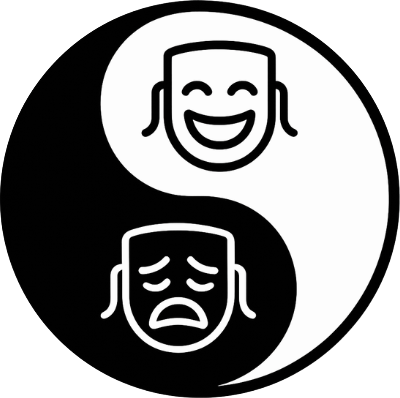#Verified: Aleksa Gagic
We've wanted to have a dietitian on since we started the #Verified series. But we chose to hold out until we found someone who felt confident speaking to the unique demands of actor peak performance, which differs in significant ways from athletic performance or everyday performance. At last, we found one: Aleksa Gagic.
Aleksa is a sports dietitian and nutritionist (APD, AccSD) who has worked with athletes in basketball, soccer, CrossFit, and Brazilian Jiu-Jitsu (to name a few) for over seven years. He also has a killer Instagram feed, but unlike many others in the IG "nutrition space", Aleksa is accredited. An important distinction.
Here, we speak to Aleksa about flexible nutrition, the actor as athlete, and his "controversial" stance on good and bad foods.

We love your mission of "inspiring the peak potential within". Where did this all start for you?
Aleksa Gagic: When I started practising as a dietitian, I had a big passion for working with athletes and helping them leverage nutrition to reach their performance goals. From there, I quickly realised that while yes, athletes have performance goals, everyone in life – whether athlete or non-athlete – has a level of performance they want to reach.
So, it came from realising that I was passionate about helping people feel their best, and also become their best and perform their best. And that will obviously look different for each individual. We all have different jobs. We all have different priorities. We all have different focuses. "Performance" for one individual is different to another, but fundamentally, everyone has an idea of "performance" that they want to reach, even if they don't think of it as "performance".
100%. You work with the principles of flexible nutrition. How do you define this approach for those new to it?
AG: Flexible nutrition is an approach that enables you to harness both structure and science and also freedom and flexibility. I like to call it "structured flexibility".
Essentially, you have a strategy, you have a focus, you have a right way of doing things, but at the same time, you're not overly restrictive. You're not putting yourself in a position where you can't have all these other foods or all these other ways of doing things that enable you to enjoy life. You have a diet that is flexible to a degree, not too restrictive and rigid – which is what you see with a lot of traditional diets – but is still very much strategically applied toward a specific goal. It's not just, "You can eat whatever you want" – there is structure to it – but it's not done in a way where you hate doing the diet, you fall off super easy, or causes mindset issues along the way.
On this, how do you advise your athletes course correct after falling off the bandwagon?
AG: One of the biggest issues people have when implementing a nutrition plan – call it getting from point A to point B – is that they don't actually do the whole journey. They stop. So, what I advise athletes to think about when it comes to this is, the best thing you can do is just get back on track as soon as you can. You have one day off? Get back on the next day. Don't worry about it, don't stress. You're going to do yourself more of a disservice by worrying and dwelling on it.
The analogy I like to use is of tyres. Let's say you're driving down the motorway, and one of your tyres pops. Quitting is the equivalent of going, "Let's just pop the rest", instead of getting the spare or calling roadside assistance. But what's the point of popping the rest and being in a worse position now than you were? So, number one, get back on track as soon as you can.
The second part to this is understanding the obstacles. While they're not fun, treat obstacles and setbacks as learning opportunities – as times you can actually do better and become better. Learn from those mistakes. Reflect. Think about what to do the next time.
Do those two things, and you'll be in a good position.
We're big fans of how you break down the Nutrition Pyramid of Priority. Can you share the basic idea?
AG: The Nutrition Pyramid of Priority is essentially a way to break down the fundamental pillars. The bottom of the pyramid is the largest, so that's the biggest priority and has the biggest impact on the goal. From there, it gets smaller, smaller, smaller, to the tip of the pyramid, which is therefore of least concern compared to the other pillars.
The Pyramid is not exhaustive. There are so many different factors and metrics involved when it comes to nutrition, but it covers the fundamentals.
For body composition, calories will have the biggest impact on what you're trying to achieve. Then macronutrients – protein, carbs, and fats. Then micronutrients – vitamins and minerals. And then nutrient timing, supplements, etc. It's about approaching nutrition step-by-step, understanding that before you jump steps and skip things, you've got to focus on the fundamentals.
You frequently talk about "leveraging nutrition" for success. For actors – or anyone looking to hit peak performance – what benefits might they experience from doing so?
AG: While not everyone wants to lose weight or wants to build muscle, we have to understand that nutrition is a pillar of our well-being and health. It's going to influence us one way or another, for better or for worse.
In terms of acting, "performance" is such an integral part of it. So, why not treat acting like it's your sport? Why not? You're having to be at your peak for extended periods of time. It's not easy. Leveraging nutrition can help make you a more consistent performer, improve your concentration and mental clarity, and therefore, you'll not only act better, you actually be able to do it for longer.
We never think of acting as a high-performance activity, but in actual fact, it is.
A-men 🙌 What do you say to people, though, who feel optimal nutrition is too inaccessible – perhaps a privilege reserved for well-paid elite athletes and social media celebs?
AG: First, keep in mind that a lot of influencers promote things that, 1) they might not actually be using themselves, and 2) is – for lack of a better word – crap. It's not really needed or effective. So, you've got to remember that your health is not necessarily in their best interest.
Nutrition doesn't have to be this super complicated beast we have to conquer. It can be a lot more simple than we think. First and foremost, look into whether you're giving yourself enough food. Are you under-eating or eating inconsistently? If so, how can you bridge that gap? You need to fuel the work demand.
Number two is, do you have a balance of macronutrients? Are you eating enough protein? Are you giving yourself a consistent intake of good-quality carbohydrates to keep going? Are you eating healthy fats to give you that protective effect?
Number three is hydration. Are you actually hydrating? Because if you're not hydrating, you're not going to be in the best possible position mentally and physically. Especially with long hours and shooting in different conditions and travel. Make sure you're drinking enough water.
Then the fourth thing is making sure you're getting rest where possible. I understand that's easier said than done. But if you can't allow yourself to at least improve upon what you're doing from a recovery and sleep point of view... It's a low-hanging fruit you can juice right now to get yourself in a better position.
You're unique and therefore your nutrition approach should be too, but these are the fundamental pillars of being the best you can be.
Gold. Finally, if you could permanently expel one health myth from the currently abundant sea of misinformation, which would you choose?
AG: How do I choose just one? There are so many that would benefit people if we were to dispel... I'll go with the one that I get sick of dispelling, which is that carbohydrates are the enemy – that carbohydrates are unhealthy or bad. In actual fact, when harnessed in the right way, there's no reason to fear them.
I could also be kind of controversial and expel the notion that there are "good" and "bad" foods. There's no good or bad. Foods are just foods. Some are more nutritious; some are less nutritious. Some we should eat more; some should eat less. Obviously, everyone's got different lifestyles, everyone's got different health conditions. But generally speaking, there are no real "good" or "bad" foods, only bad ways of "dieting". No one ever got healthy off of eating one salad. And definitely, no one ever got unhealthy from eating one pizza. Food for thought.
Aleksa's qualifications: BA (Hons) Health Science.
Big props to Aleksa for his time. You can learn more about Aleksa's work here and tune into his podcast here. If you reach out, let him know you’re from the Dojo 👊
